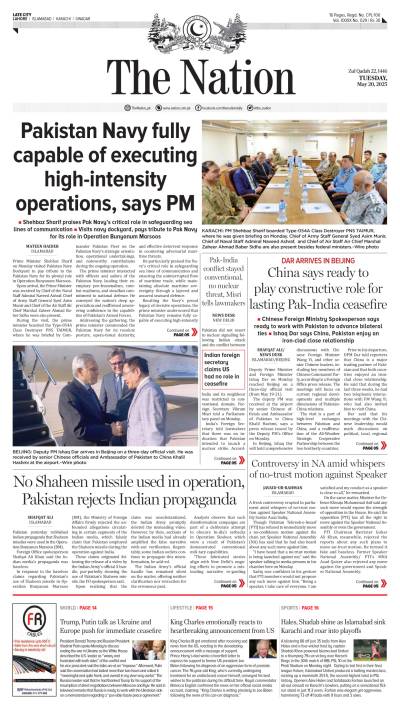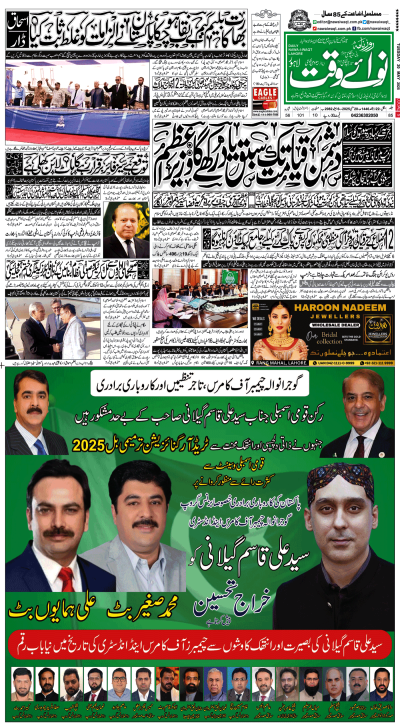In his famous book, Reign of Terror: How the 9/11 Era Destabilised America and Produced Trump (published in 2021), the American journalist and writer Spencer Ackerman opines that the incident of 9/11 imparted domestic insecurity and transformed the United States (US) into a security state that engulfed society by trampling over civil liberties. Furthermore, the incident, which kick-started the war on terror, established a close relationship between national security and national politics. In the book, however, Ackerman forgot to mention that all the countries impacted by the war on terror also started experiencing a nearness between national security and national politics, whether or not such proximity was necessary. Pakistan has been one such example.
For Pakistan, the war on terror refuses to die. Before 2001, Pakistan’s main focus of attention was its eastern neighbour, India. After 2001, Pakistan is clueless about how to take its eyes off its western neighbour, Afghanistan. Trump has publicly thanked Pakistan for arresting Mohammad Shareef Ullah, involved in the Abbey Gate bombing in August 2021, when US forces were withdrawing from Afghanistan. Belonging to the Islamic State (ISIS-K), Shareef Ullah was dissociated from the Afghan Taliban ruling over Kabul and had been carving the future of his organisation. Reportedly, he was handed over to the US without fulfilling the necessary procedures governed by any bilateral treaty. Nevertheless, a mere reference to the war on terror was enough to permit Pakistan to oblige the US. This may be the starting point of a new story. It would now be natural to suspect any terrorist attack in Pakistan’s northwest to have been launched in reprisal by the Islamic State. Its competitor would be the Tehreek-e-Taliban Pakistan (TTP), which has been showing its presence since 2007.
In his book, Ackerman argues that, in the US, national security expanded to stave off any future 9/11. This is where a difference lies. In Pakistan, national security inflated to seek more hold over the governing system. Not only is the space for exercising civil liberties shrinking, but opportunities for raising one’s voice are also dwindling. Amendments to the Prevention of Electronic Crimes Act (PECA), passed on 8th February, to restrict freedom of expression and curb independent media, are a case in point. The major challenger is not electronic or print media but digital media, which escapes censorship overseen by the government. Much effort was made to subdue digital media, but now a refuge has been sought in penalising those found involved in spreading news dubbed as fake news. Nevertheless, the associated challenge is far bigger than the original one. Digital media is not only a platform for the dissemination of news but also a platform for the expression of one’s opinion on happenings affecting daily lives.
Digital media has made everyone holding a digital phone a commentator. This is where the rub lies. The PECA law may circumscribe fake news but not running commentaries. Whereas fake news might be the beginning of digital media, running commentaries are fuel for its sustenance. Hence, digital media is bound to rely overwhelmingly on running commentaries rather than fake news. The triumph of Trump in the recent presidential election extends a testimony to the power of running commentaries prompted by digital media.
Contrary to the Americans, expatriate Pakistanis have become a force to be reckoned with. The educated middle class has been leaving Pakistan in thousands each month in search of greener pastures abroad. Their preference is not fake news but running commentaries. It is the exposé that is craved and admired. It is the close relationship between national security and national politics that is abhorred. The monetisation of running commentaries has emboldened the embrace of digital media.
The vulnerability of Pakistan’s electronic and print media to manipulation in the name of national security is well known. As the state enjoys a monopoly over violence, the state’s yearning to enjoy a monopoly over the kind of news dispersed is also well known. In fact, the state also wants to enjoy a monopoly over fake news, whether or not in the name of national security, which is impinging upon the domain of national politics. In the wake of 9/11, the US may justify the outreach of its national security to truncate civil liberties; Pakistan extends no such justification. Pakistan has not gone through any 9/11 to impose national security on national politics.
A bigger question is this: should electronic or print media be permitted to suppress news of public interest or tinker with a narrative to suit any version of national interest? The answer is in the negative. This is where space for digital media surfaces—to function in a manner deregulated from the state’s coercion.
For a country such as Pakistan, globalisation is a curse, as it fosters interconnectivity—between civilisations, races and, above all, minds. It is the spread of curiosity that keeps one both interested and worried simultaneously. For instance, in its International Debt Report, released on 3rd December 2024, the World Bank revealed that Pakistan’s total external debt (including what Pakistan owes to the International Monetary Fund) had reached $131 billion in 2023. A question is this: how will Pakistan pay this huge debt, given the tendency of persistent, unhindered, high spending in non-developmental areas? For how long will loans be sought to service loans and associated interest?
For any middle-class educated Pakistani, the immediate concern is that, on the one hand, national security is taking a toll on national politics, leaving little space for dissent, whereas, on the other hand, the future is reeling under a huge debt. The solution lies in digital media-based running commentaries—to give vent to one’s thoughts and fears, undeterred by the state’s dictation, be it the PECA or not.
Dr Qaisar Rashid
The writer is a freelance columnist. He can be reached at qaisarrashid@yahoo.com





